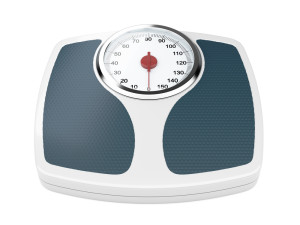A patient with PH isn’t feeling well. They decide to call their doctor’s office and speak to their nurse coordinator. The conversation starts with the nurse asking about symptoms such as shortness of breath, lightheadedness or dizziness, and fatigue. The patient answers confirming that yes indeed they are more short of breath than usual when making the bed and they are feeling run down and tired. Then the nurse asks if they have gained any weight. This may seem like a question out of left field to the patient. A patient might wonder why the nurse would be thinking about their weight when they obviously aren’t feeling well and need help with the symptoms they are concerned about.
The patient answers confirming that yes indeed they are more short of breath than usual when making the bed and they are feeling run down and tired. Then the nurse asks if they have gained any weight. This may seem like a question out of left field to the patient. A patient might wonder why the nurse would be thinking about their weight when they obviously aren’t feeling well and need help with the symptoms they are concerned about.
Why Does My Pulmonary Hypertension Expert Always Ask About Weight Gain?
The PH specialists isn’t as concerned with the exact number on the scale as they are with how much that number has changed. Pulmonary hypertension patients have decreased cardiac output (the amount of blood the heart pumps with each beat) which puts strain on all of their internal organs including their kidneys. The result is that PAH patients retain fluid, their bodies hang on to it instead of filtering it through the kidneys and expelling it as urine. The increased fluid adds strain to an already stressed heart which can make it harder for the heart to pump efficiently and decrease the cardiac output. This can lead to shortness of breath, swelling, and lightheadedness or dizziness. The cycle goes on and on.
How Can PH Patients Avoid Fluid Retention?
It is very important for PAH patients to follow a low sodium diet and fluid restriction. Compliance with taking diuretics (pills to help get rid of extra fluid) is also a key part to avoiding fluid retention. The most important step to avoid a crisis from fluid retention is to take daily weights at about the same time of day wearing the same amount of clothing. This is the only way to catch small changes in weight and is essential to avoiding major problems from fluid retention. Many PH patients believe they will know when they are retaining water by the amount of swelling in their ankles. This is a flawed system as they may have gained 10 pounds or more before they start to swell.
Why Is It Important To Call My PH Specialist If I Have Gained 3 Pounds?
Most Pulmonary Hypertension Centers want their patients to call right away if they have gained 3lbs over 1-3 days. This weight gain may or may not be associated with worsening PH symptoms. It is very important to call the physician at this early stage as they can most likely safely take off the water weight by changing or increasing medications with the patient in their own home. The more weight the patient gains before alerting the PAH team the harder it is to safely take it off at home and a hospitalization may be required.
